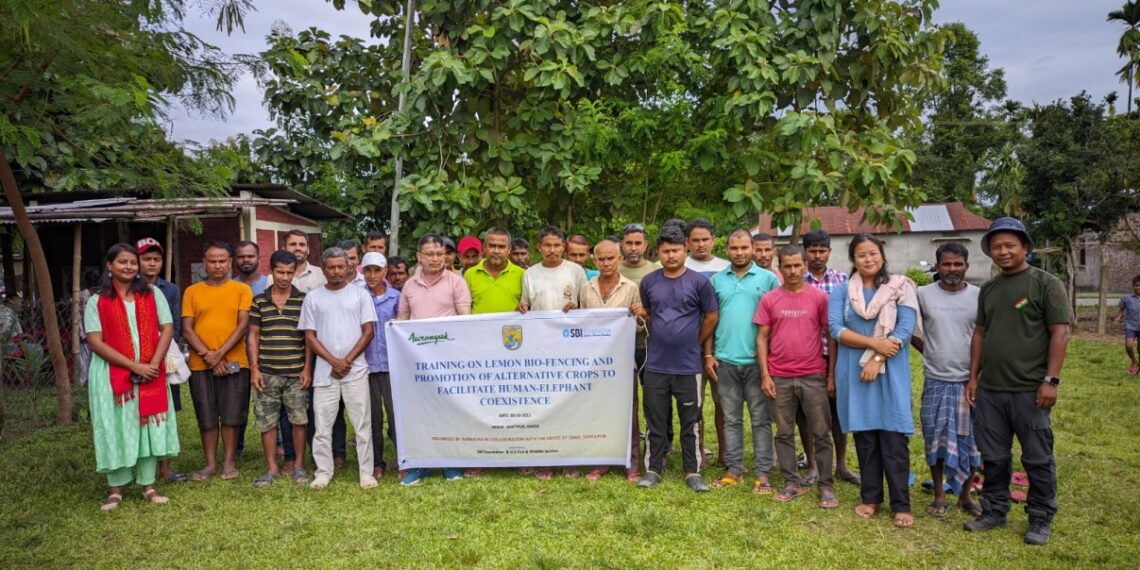GUWAHATI: In a bid to ease the human-elephant conflict (HEC) and enhance coexistence in select regions of Tamulpur and Baksa districts in Assam, a leading biodiversity conservation organisation, has adopted a tripartite approach.
The strategy includes planting alternative crops to paddy, installation of solar-powered LED lights to deter elephants from settlements, and construction of watchtowers to monitor wild elephant herds. The three-fold strategy of Aaranyak has secured the backing of the United States Fish and Wildlife Service (USFWS) and SBI Foundation (SBIF).
Of late, the biodiversity organisation has been guiding farmers, adversely affected by HEC, towards cultivating crops that are less appealing to wild elephants. This initiative, which commenced in Sesapani village in Tamulpur recently, not only intends to mitigate the clashes but also offers an added source of income for these communities.
ALSO READ Empowering communities for peaceful human-wildlife coexistence
Recently, a training session was also organised by Aaranyak for the village’s community that saw the participation from 40 local farmers. Bhanita Baruah, the Agriculture Development Officer of Kumarikata Circle in Tamulpur, spearheaded the session. She underscored the potential of crops such as Assam lemon, ginger, turmeric, and mustard – not just for their lower appeal to elephants, but also their lucrative market price.
Following the training, 50 kg of mustard seeds were distributed among 18 farmers. An additional 50 kg was later supplied to farmers in the Udalguri district on October 13.
ALSO READ Govt departments join forces to tackle human-elephant conflict in Assam’s Baksa
To safeguard crop fields and residential areas from elephants, Aaranyak also installed solar-powered LED lights at five strategic locations in Nayapara and Hastinapur areas of Baksa district on October 14. Prior to this, a detailed survey was conducted to understand the migratory patterns of the elephants in these areas.
These lights, equipped with sensors and installed at specific locations, are expected to discourage elephants from approaching human habitats. This initiative is expected to benefit approximately 1,500 households in the Chawlkara revenue village.
Teaming up with local communities, Aaranyak has begun erecting six permanent watchtowers in the Onthaibari and Khasibari neighbourhoods of Baksa district. These towers are designed to supervise crops and deter wild elephants from feeding on them. Such community-based crop protection strategies have proven effective in other regions.















